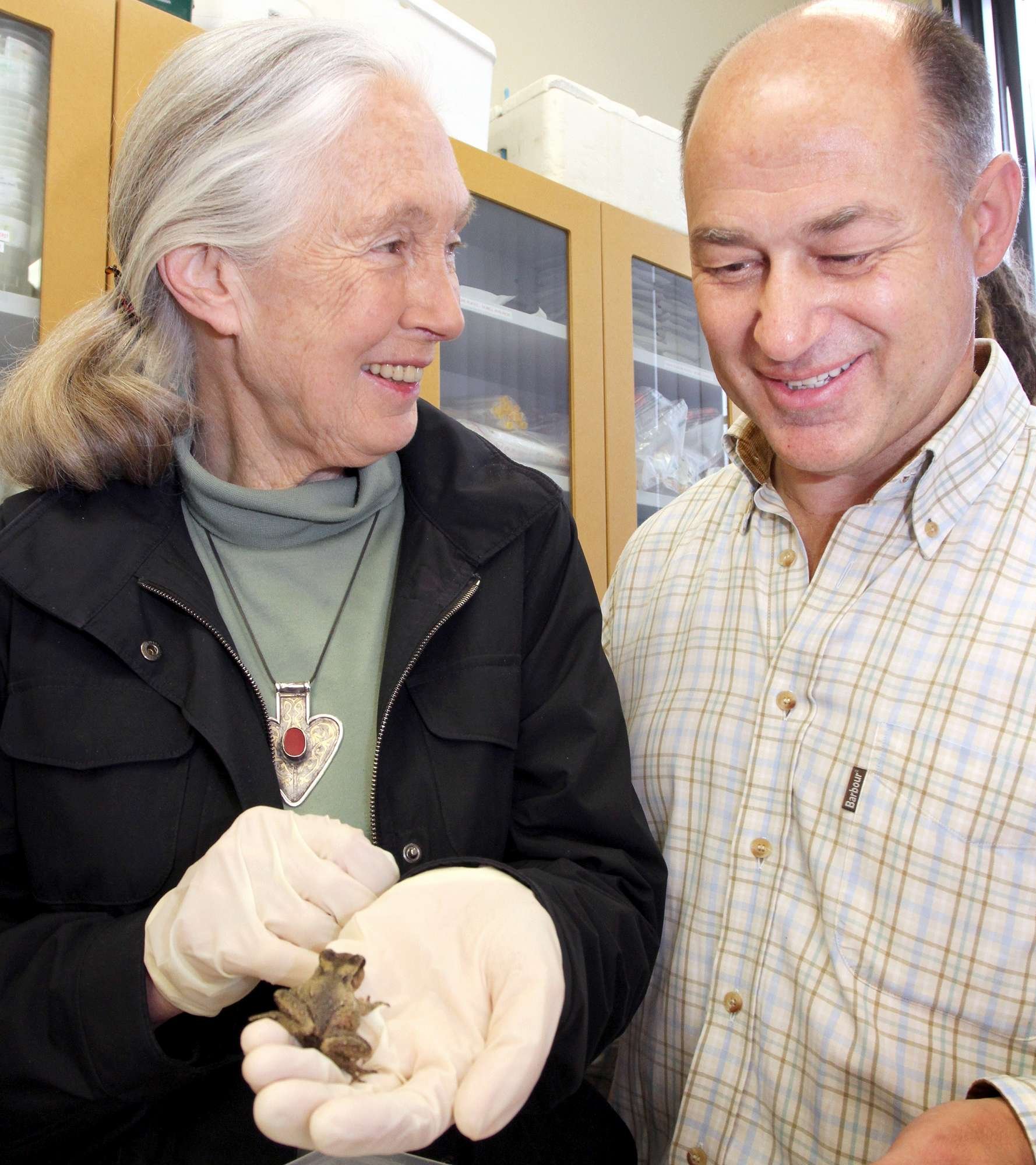Benefits of Being in Nature
Wild Dunedin — Mar 30, 2020
Wild Dunedin encourages people to enjoy nature by walking in the forest, on a beach, in the mountains, in Orokonui Ecosanctuary or just around the Town Belt.
Top tip from Taylor: "have your meeting in a river, this way the conversation is always flowing." Our meeting in the Leith promoted our 2019 freshwater festival theme. Image by: Taylor Davies-Colley
Before we look into research findings on whether nature is actually good for you, take a look at this video that uses humour to convey the same message.
Nature Rx Part 1
We asked Dr Phil Bishop in 2020 to research findings on the positive effects of being out in nature. We asked whether it’s just as good to watch an Attenborough documentary, as being out there in nature?
Being a scientist, I have to maintain a logical viewpoint and probably accept that the endorphins produced in your brain as a result of being in nature versus those produced when watching a nature documentary are probably equivalent, so we should feel just as good watching the TV as going for a walk in the bush.
Dr Jane Goodall and Dr Phil Bishop, Professor of Zoology at Otago University… both passionate about the importance of frogs in our ecosystem.
However, being a frog-fanatic, I know instinctively that while I get great pleasure from watching films or looking at photos of really cool frogs, nothing will beat the enjoyment of capturing one in the hand and looking into its eyes, a truly intimate and amazing experience. So, is getting outside and being exposed to the real nature better for you?
The simple answer is ‘Yes’ and scientific research backs-up my insight! Scientists from the UK, Sweden and USA*[1] published their research last year that showed that you need to spend at least (and preferably more than) 2 hours per week in contact with nature to experience significant increases in feelings of good health and well-being. Using data collected from around 20,000 participants in England they found that 84% of participants who spent between 120-179 minutes a week with direct exposure to nature reported good health, and 65% reported high well-being.
“Aha”, I hear you say, that correlation is just because the people who ‘get out in nature’ are simply those that are more active, so it’s the physical activity that is generating the feelings of good health and well-being. However, there is recent research into Shinrin-yoku (Japanese “forest bathing”)[2], that demonstrates some of these positive feelings can be gained from merely sitting passively in nature. The correlation is not so clear-cut.
Wild Dunedin promotes these feelings of good health and well-being and encourages you to get outside and feel better! It seems even the wildlife knows that there is a lockdown – we were walking our dog on the deserted Chisholm Links and watched an Australasian harrier being mobbed by two magpies and a pair of spur-winged plovers. Driving home we saw a red-billed gull accidentally crash, head to head with a poor unsuspecting cyclist, minding their own business, on Portobello Road on the causeway over Andersons Bay Inlet – both were shaken and a little stirred! Unusual and interesting times!!
[1] White et al. 2019 Spending at least 120 minutes a week in nature is associated with good health and wellbeing. Scientific Reports 9:7730 (https://doi.org/10.1038/s41598-019-44097-3).
[2] Park, B. J., Tsunetsugu, Y., Kasetani, T., Kagawa, T. & Miyazaki, Y. The physiological effects of Shinrin-yoku (taking in the forest atmosphere or forest bathing): evidence from field experiments in 24 forests across Japan. Environ Health Prev15, 18–26 (2010).
The Late Dr Phil Bishop was Professor of Zoology at Otago University and a founding member of the Wild Dunedin organising committee.
This video beautifully illustrates why we need forests and how they can heal. We highly recommend taking the time to view this short film.
How Forests Heal People, by Nitin Das


